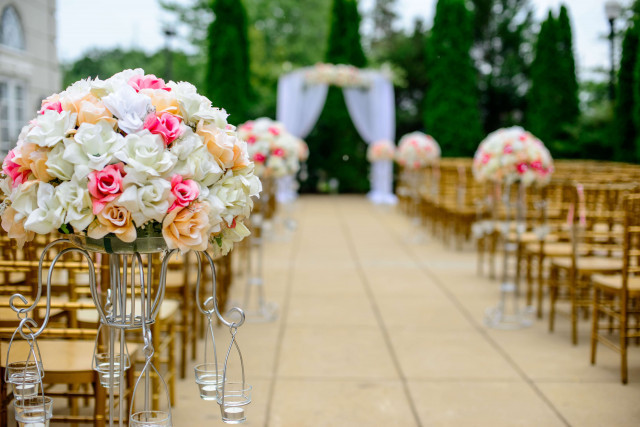If you’re currently planning your own wedding or are planning an event for another couple, you might feel overwhelmed about COVID-19 and it’s potential to impact the big day. Just know this: It’s not a matter of if there will be a wedding. It’s just a matter of when.
Here are five tips for planning a wedding during a global pandemic for any hospitality professional who is feeling the pressure.
1. Postpone, don’t cancel.
As a wedding planner, it is important to walk the couple through this difficult time and remain calm. Do your best to carry the vision of the couple forward by creating a new game plan for a future date. Speak with your entire wedding team – event planner, caterer, venue, musicians, photographer/videographer and others – and begin choosing a date no earlier than August. If possible, September is recommended.
2. Be flexible.
Not every vendor will be able to accommodate the new date, so be flexible. Prioritize getting the venue and ceremony date re-booked, and secure the caterer first. Most wedding vendors have a “Community Over Contract” philosophy and will give clients a 12-18-month period to re-book and utilize their services.
3. Set up a communication plan with guests.
Creating a blurb on the couple’s wedding website may give them a break from answering constant questions. When rescheduling dates, keep guests in mind, especially if they are from out of town so they can make the necessary adjustments.
READ MORE: The Surprising Stories Behind Popular Wedding Traditions
4. Be creative.
Some couples want to get married now, so they are scaling back and having a virtual wedding using a service like Zoom, with everyone online in different locations. Other couples are choosing to live stream the wedding for guests who cannot attend. Couples can also marry now and save the full-scale reception for next year.
5. Consider safety protocols.
Event companies are implementing safety-first guidelines at events. For example, a mandatory pre-screening survey for all guests is suggested so that any guest who is sick knows to stay home. Any guest who has experienced fever/flu symptoms up to 96 hours before the event or has traveled out of the country leading up to 14 days before the wedding should be told to stay home. Some couples are also implementing a no touch (kiss, shake hands, or hug) policy. Venues should also prioritize establishing portable hand sanitizing stations at all the entrances and exits. Couples may also consider including hand sanitizer in favor bags. In addition, event staff must work with the ceremony and reception venue to ensure that restrooms are cleaned and sanitized throughout the event. This includes railings, doors, microphones and any other community objects.
If you are moving forward with your wedding after July 2020, keep in mind that the couple should be following recommendations and guidelines from the Centers for Disease Control (CDC). The guest count will probably be smaller and vendors may be more restrictive. For example, florists will probably have to source locally due to the impact on the world flower market. In the catering industry, you will have to pay close attention to minimum guest counts that could affect pricing. Food service styles such as buffets and stations would now not be options.
Overall, weddings have always had to adapt in challenging times. During World War II, wedding dress makers had to petition the government to continue to make wedding dresses out of silk. Some even made them out of their fiancé’s parachutes. In the 1960’s with divorce beginning to climb, it even became out of fashion to marry. In the end, weddings have always survived and adapted to the times. This ancient ritual has had to endure many global challenges. They may be postponed or smaller in guests for the time being, but weddings are here to stay.
Want to learn more about earning your bachelor’s degree in Sports, Entertainment, Event — Management? Complete the Request Info form or call 855-JWU-1881.
